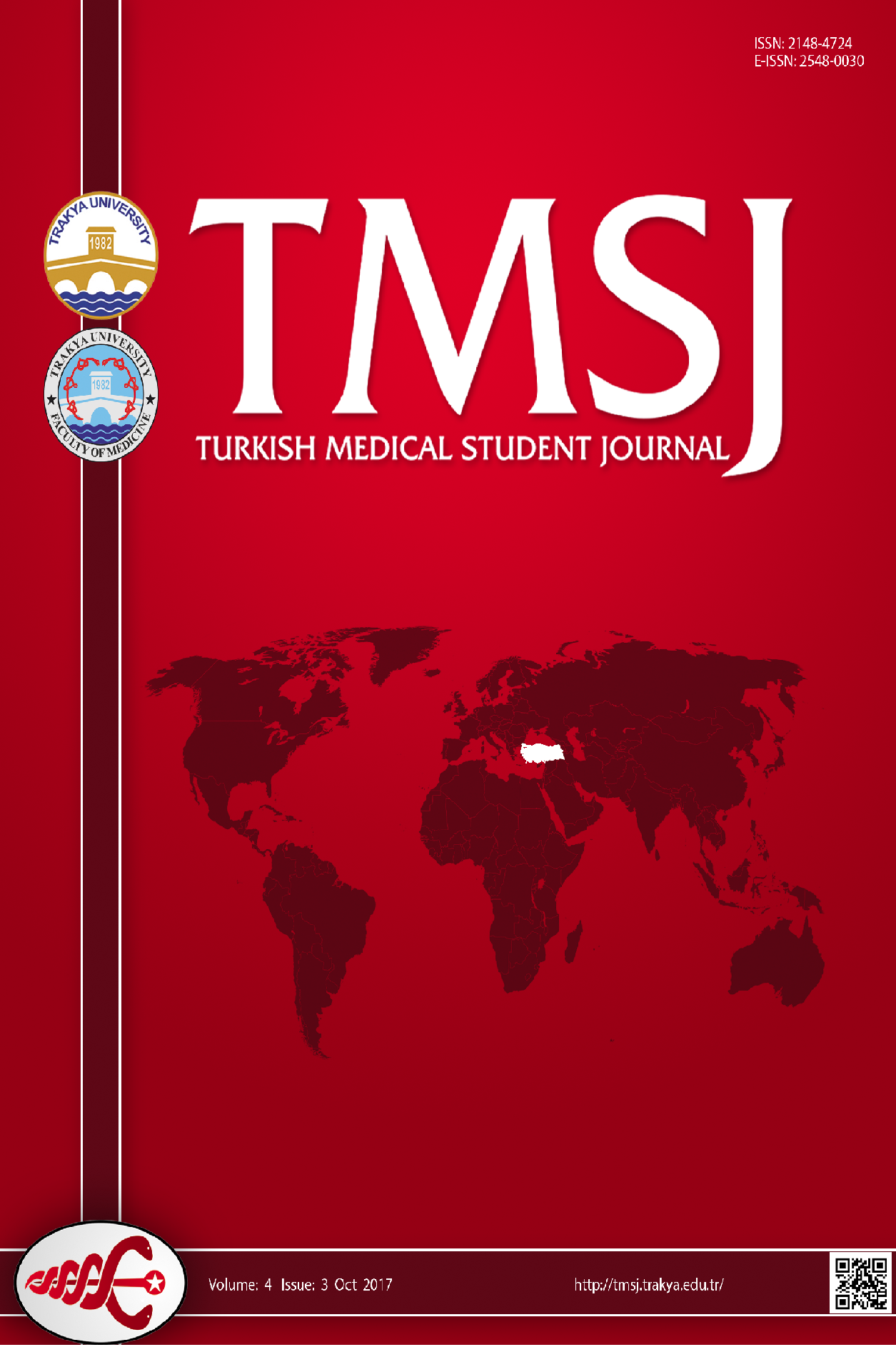
Turkish Medical Student Journal
Yazarlar: Kübra Gökçe, Nur Gülce İşkan, Nebiye Pelin Türker, Maide Kaşit
Konular:-
Anahtar Kelimeler:Colon cancer,Salicylic acid,Cell culture
Özet: Aims: Colorectal cancer is the 3rd most common cancer in the world. It affects more than a million people and causes the death of half million people annually. Flavonoids are natural products belonging to plantae and some fungal organisms that recently have started to be popular for cancer research for its strong antioxidant, anticarcinogen and anti-tumor properties. Naringin is a special chemical compound of flavonoid groups in grapefruit and useful for its antioxidant and immunostimulatory properties. Salicylic acid is a stress-specific hormone that also has an anti-tumor effects on colorectal cancer. In this study, it is aimed to evaluate the effect of naringin, salicylic acid and their combination on colon cancer cells via gene expression profiles of apoptosis genes and anti-proliferative properties. Methods: HT29 colon cell culture was incubated in 37 C and 5% CO2. Salicylic acid, naringin and their combinations were applied seperetaly on 80% confluent cells in 11 different doses starting with 800 µM and going half of the previous. MTT survival test was performed at 24th and 48th hours after application. To see the effect on apoptosis and antioxidant pathway; apoptotic protease activating factor, B-cell lymphoma 2, B-cell lymphoma 2 associated X, B-cell lymphoma 2 - XL, Cytochrome C, Cellular inhibitor of apoptosis protein 1, Cellular inhibitor of apoptosis protein 2, Glyceraldehyde-3-phosphate dehydrogenas, Caspase 3, Livin, Survivin, p21, p27, p53 and X-linked inhibitor of apoptosis, Catalase, Glutathione peroxidase, Superoxide dismutase 1 and Superoxide dismutase 2 gene expressions were assayed on 24th and 48th hours by using real time PCR.Results: Single and combined application of naringin and salicylic acid decreased cell proliferation at both 24th and 48th hours. Results in 48th hours were more obvious. None of the applications caused an increase in number of cells in any applied dose. In the real time PCR analysis, the expressions of apoptosis inhibitor genes that play a crucial role in antioxidant pathway were increased. The increase was more distinct in the combination of naringin and salicylic acid.Conclusion: In this study, it is found that both salicylic acid and naringin cause a decrease in the number of colon cell culture. As for their combination it also worked well. The increase in apoptotic gene expression was exclusive. It can be said that naringin, salicylic acid and especially their combination can be a promising treatment as a supported option for colon cancer patients in the future